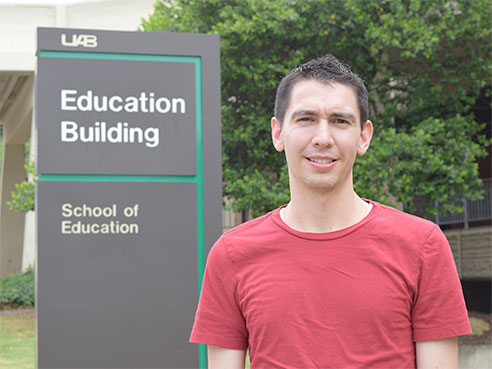Written by: Tiffany Westry
Need more info? Contact us
 Samuel Cauffman, a graduate student in the UAB School of Education, is the recipient of the 2016 Steven M. Horvath Travel Award by the American College of Sports Medicine. Cauffman is pursuing a master’s degree in exercise physiology in the Department of Human Studies.
Samuel Cauffman, a graduate student in the UAB School of Education, is the recipient of the 2016 Steven M. Horvath Travel Award by the American College of Sports Medicine. Cauffman is pursuing a master’s degree in exercise physiology in the Department of Human Studies.
The $500 grant funds expenses for underrepresented minority graduate students traveling to the ACSM’s Annual Meeting and World Congress on Exercise Medicine to present their scholarly work. Only two student members are selected for the award each year. The annual meeting is the most comprehensive gathering of sports medicine and exercise science professionals in the world, with more than 6,000 coming together to discuss the science, practice, public health and policy aspects of sports medicine, exercise science and physical activity.
Cauffman’s poster presentation, “Associations between Antioxidant Capacity and Insulin Sensitivity at Baseline but not following six weeks of HIIT or MIT in Obese Males,” examines exercise intensity and its effect on oxidative stress.
Oxidative stress is an imbalance between the production of free radicals and the ability of the body to counteract their harmful effects through neutralization by antioxidants. Studies have shown that changes in oxidative stress can be connected to excess weight or obesity, which is an established risk factor for type 2 diabetes. Insulin sensitivity is one of the hallmarks of the disease. Oxidative stress or low total antioxidant capacity is associated with increased insulin sensitivity in overweight or obese individuals. Previous research suggests that exercise training can improve one’s resistance to oxidative damage to cells by increasing the body’s own defense systems. Because of this, Cauffman compares whether high-intensity exercise affects the body’s antioxidant capacity more than moderate exercise.
Cauffman will present the results of his research on June 2 in Boston, Massachusetts.